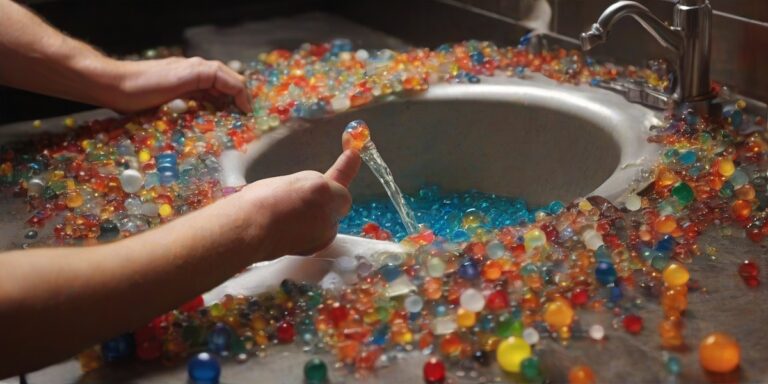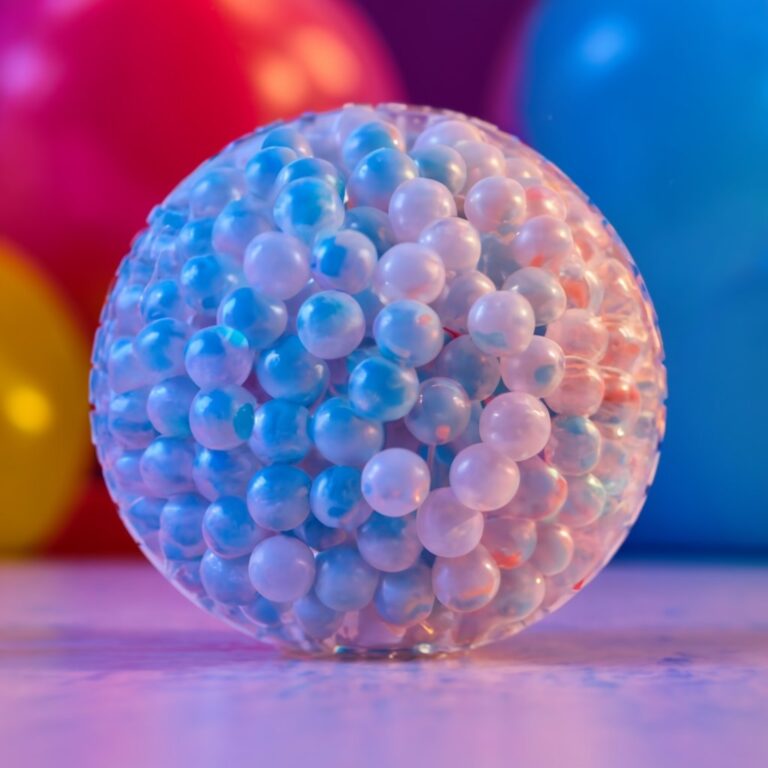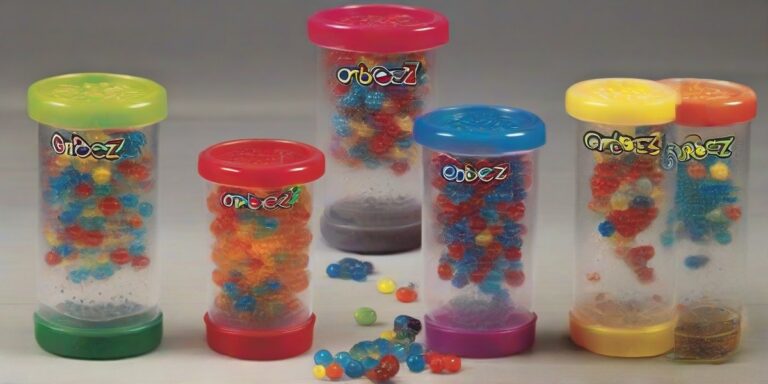Are Orbeez Guns Illegal? Exploring the Complex Orbeez Gun Debate
Orbeez guns, also known as splat guns or gel blasters, have become an increasingly popular toy and hobby item in recent years. However, with their rising popularity, debates around whether these toy guns should be legal and accessible have also intensified.
In particular, the question “are orbeez guns illegal?” has been circulating, with differing regulations across states and countries. Some argue that orbeez guns are dangerous weapons that enable bad behavior, while others view them as harmless, engaging toys.
This article will dive into the orbeez gun debate in depth. We’ll explore both sides of the argument around whether orbeez guns should be legal or banned, look at different regulations in the U.S. and internationally, and provide an overview of the risks and benefits around these toys.
What are Orbeez Guns?

First, let’s start with an overview of what exactly orbeez guns are and how they work.
Orbeez guns are toy weapons that shoot small gel beads, usually made of a water-absorbing polymer called polyvinyl alcohol (PVA). The beads are about 3-5mm in size, similar to small BB pellets, but made of a soft, squishy gel material.
To use an orbeez gun, you first soak the orbeez beads in water, which causes them to expand substantially in size. The expanded orbeez are then loaded into the toy gun and can be fired rapidly using a spring-powered firing mechanism.
When fired, the water-filled orbeez beads hit the target with a gentle splat, then harmlessly fall to the ground. This provides a fun gaming experience similar to paintball, but with soft beads instead of paint pellets.
Orbeez guns come in many styles, including pistols, rifles, fully automatic blasters, and shotgun styles. They are popular for recreational target shooting, gaming, and tactical training.
The Debate Around Banning Orbeez Guns
Now that we’ve covered the basics of what orbeez guns are, let’s look at the debate around banning them. Those who support making orbeez guns illegal typically make the following arguments:
They can be easily mistaken for real guns, causing public panic. With their realistic designs and ability to fire rapidly, orbeez guns can look like actual firearms at first glance. This can spark fearful and dangerous reactions.
The orbeez beads still hurt when fired at close range and can potentially cause injury, especially to eyes. While less dangerous than BB guns or airsoft guns, orbeez beads could blind someone if shot directly into unprotected eyes.
The concern about Orbeez extends beyond their potential toxicity for dogs. These gel beads not only pose risks when ingested by pets but also enable bad behavior and unsafe use, especially among children and teens. Due to their design, Orbeez guns are tempting for shooting at other people, animals, private property, etc.
Limited regulations mean they are easy for anyone to purchase, including children and criminals. Accessibility enables misuse and abuse.
The pellets litter neighborhoods and damage the environment. Ruptured orbeez beads litter yards and streets and do not biodegrade easily.
These core arguments around safety and the potential for misuse underpin the position that orbeez guns are dangerous weapons that should be banned or much more tightly regulated.
The Case for Keeping Orbeez Guns Legal

Others argue strongly on the side of keeping orbeez blasters legal and accessible. Their reasoning includes:
- With proper safety gear, they can be used safely for recreation. Like other projectile toys and games, safety precautions greatly reduce any risk of injury.
- The potential for minor injury is similar to toy bows & arrows, slingshots, etc. These toys remain legal when used properly.
- Regulating them like firearms goes too far given their actual limited danger. Reasonable restrictions make more sense.
- Like any toy, parental supervision is key to safe use, not bans. Responsible parenting can mitigate misuse.
- They have legitimate uses for STEM education, tactical training simulations, and more. Banning impedes positive applications.
- Restricting access primarily hurts law-abiding hobbyists, not criminals. Bans place an unfair burden on legal owners.
Overall, those arguing against banning orbeez blasters say strict regulation or total prohibition goes too far given the minimal danger of these toys. With proper precautions and oversight, they provide a fun hobby similar to more established shooting sports games.
Orbeez Gun Regulations in the U.S.
Given this debate, what do the actual laws around orbeez guns look like in the United States? Regulations vary significantly at both the state and local level.
Some states, like California, have placed orbeez guns in the same legal category as BB, pellet, and airsoft guns. This requires all buyers to be over 18 and prohibits brandishing them in public.
Other states, including Texas, Virginia, and Michigan have little to no regulations on orbeez blasters specifically, leaving any restrictions up to local authorities. With no state laws, some cities in these areas have instituted bans, while other nearby cities allow them.
New York State made headlines by passing a bill banning orbeez guns altogether. The new law went into effect in November 2022, making it illegal to sell or possess them. This followed reports of orbeez gun misuse on NYC subways. Critics argue this blanket ban unfairly punishes legal owners across the whole state.
Overall, the fragmented legal landscape means orbeez gun owners must research both state and local laws. Regulations run the gamut from no rules at all to outright bans. Continued debate may prompt more areas to examine their orbeez gun policies in the future.
International Orbeez Gun Laws
Beyond the United States, the global status of orbeez gun legality also varies. A few examples:
- United Kingdom: Orbeez guns are classified as firearms and banned from import, sale, manufacture, and possession.
- Canada: Gel blaster bans have been enacted regionally, including cities like Vancouver, but not federally. Rules differ across provinces.
- Australia: Deemed illegal “imitation firearms” under New South Wales laws, leading to confiscation. Rules vary by state.
- Germany: Requires owners be over 18 and bans public brandishing. Using them recklessly can produce criminal charges.
- Philippines: No current laws prohibit purchase, ownership, or use, making them popular.
As with the U.S., patchwork orbeez gun regulations exist worldwide based on different regional assessments of risk and harm. Countries like Australia and the UK have taken a stringent prohibition approach, while others remain largely open to gel blaster use.
Weighing the Risks and Benefits

Given the evidence from both sides, how should we evaluate the overall risks versus benefits of orbeez guns?
Potential risks, while often exaggerated, do exist – mainly the prospect of misuse that causes minor injuries or dangerous panics. However, actual reported cases of orbeez gun harm remain relatively rare, especially with proper supervision.
In terms of benefits, orbeez blasters provide an engaging outdoor activity that encourages exercise, bonding, and skill-building for both children and adults. With protective gear, established rules, and common-sense precautions, they enable safe, competitive fun for hobbyists and families.
On balance, when used responsibly under adult supervision, orbeez guns appear to offer enriching recreation with minimal inherent danger. While further study could shed more light on usage patterns and safety, the benefits seem to outweigh the risks for legal owners.
However, regulations could help keep orbeez guns out of the hands of those who would misuse them criminally or recklessly. Perhaps applying standards around age limits and public brandishing, similar to paintball restrictions, allows responsible use while prohibiting behaviors that spark justified concerns.
FAQs About Orbeez Gun Bans
With orbeez guns facing restrictions in some areas, many have questions around exactly why and where these toy weapons are prohibited. Here we answer some of the most common legal questions around orbeez blasters:
Why are Orbeez guns banned?
Orbeez guns have been banned primarily due to concerns around safety and potential misuse. Fears stem from their realistic appearance and ability to shoot projectiles rapidly, which could incite panic or injure eyes at close range. Reports of reckless use, especially among teens, have also sparked bans. However, critics argue these risks are often exaggerated and that reasonable regulations could reduce dangers without prohibiting orbeez guns entirely.
Is it legal to have an Orbeez gun?
Whether owning an orbeez gun is legal depends heavily on your state and local laws. At the federal level, no US law specifically prohibits them. But at the state level, New York recently instituted a ban on sale and possession of orbeez guns. Some other states prohibit brandishing them in public, while many have no orbeez-specific regulations. Check your local ordinances as well.
Are gel ball guns illegal?
Like orbeez blasters, the legality of gel ball guns varies based on location. These devices shoot small, spherical water beads or gel pellets, functioning similarly to orbeez guns. States like California now classify gel blasters as airsoft guns, limiting purchases. But gel ball gun legality remains a patchwork of differing state and local laws across the US.
Are toy guns banned?
Currently, the United States has no federal laws prohibiting toy guns entirely. However, some jurisdictions do have restrictions on certain types of toy guns. For example, New York’s ban on orbeez guns also encompasses water bead blasters and splat ball guns. Realistic imitation firearms may also be controlled in certain areas. Always check your local laws regarding any product that could be mistaken for a real gun.
The bottom line is that orbeez gun and gel blaster legality depends on where you live and use them. While not federally prohibited, state and city statutes vary widely. Know your local laws before purchasing or using orbeez guns.
Beyond risks from misuse, there are also growing concerns around the chemical safety of orbeez beads themselves. A number of recent studies have suggested these polymer gels may leach toxic chemicals, especially when they breakdown in the environment after use. This raises questions around whether regular exposure to orbeez could have harmful health effects that need to be considered alongside injury risks. For an in-depth look at the emerging research on orbeez toxicity, check out our related article “Exploring the Truth: Are Orbeez Toxic to Humans?
Conclusion:
The debate around orbeez guns remains complex, with reasonable arguments on both sides. Safety fears and reports of misuse have prompted bans in some regions, while hobbyists cite overreaction in many prohibitions.
Examining the evidence shows orbeez blasters provide fun, safe play when used properly, suggesting blanket bans go too far. However, targeted regulations on purchase age, public use, and storage make sense. Responsible adult supervision also remains paramount for any youth use.
What do you think about orbeez guns? Should regulations strike a balance or impose outright bans? Share your thoughts below!







